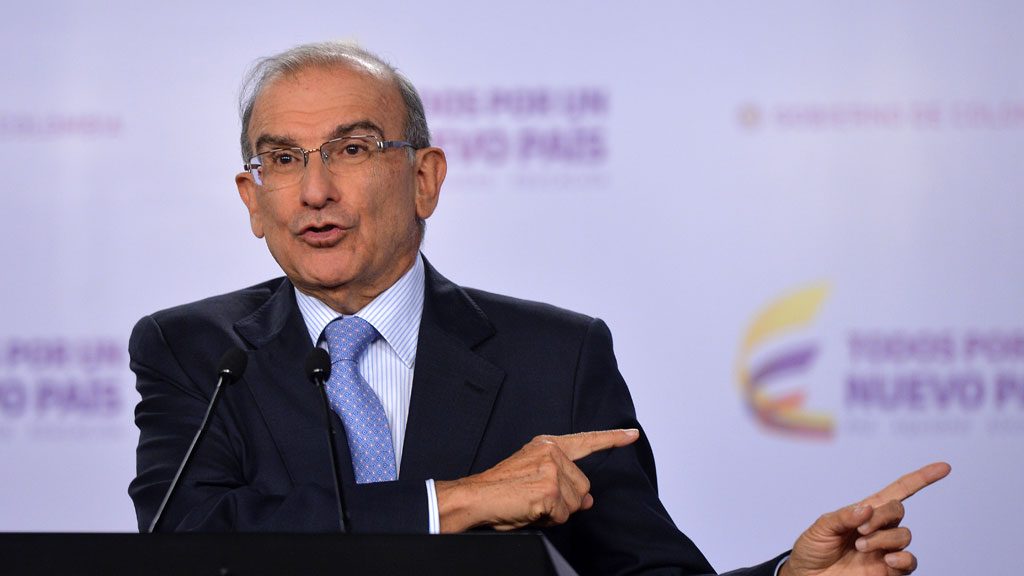Colombian President Juan Manuel Santos’ proposal to cease fire with FARC rebels has one condition: the guerrillas must agree to concentrate their troops in designated areas, the government’s chief peace negotiator said Wednesday.
Santos called on FARC leader “Timochenko” to reach agreement on a bilateral ceasefire that has been negotiated for nearly a year.
According to the president, the definitive cessation of violence ahead of an eventual peace accord would be “like a Christmas and New Year’s gift to Colombians” who have been living in armed conflict since 1964.
Santos wants bilateral ceasefire with FARC to take force on January 1
However, what the president did not say is that his invitation comes with a condition that would be quite the concession for the FARC, which has kept its forces in jungle camps and at home while enforcing a unilateral ceasefire.
According to the guerrillas, there exists great distrust among guerrillas about the concentration of forces because in previous occasions guerrillas on their way to designated areas were assassinated.
Moreover, the negotiators are still in disagreement about what type of punishment will await guerrillas convicted of war crimes, meaning that rank and file guerrillas and their commanders would not know what to expect once they agree to the government condition and concentrate their forces.
While both parties agreed to a “restriction of liberties,” there is no agreement on what this exactly means.
“There is a very large document that contains details and the due process regarding this point. We will continue discussing this” on Thursday, when peace talks resume from a brief recess, said the government’s chief negotiator, Humberto de la Calle.
The peace talks have been ongoing since November 2012 and have so far resulted in consensus between the warring parties on a far-stretching rural reform, the FARC’s political participation and the rebels’ abandoning of drug trafficking activities.
Nevertheless, after more than 51 years of war, both parties continue to be distrustful about their adversary, making a quick agreement on important pending issues as transitional justice, victim reparation and the FARC’s surrendering of weapons tough points to make progress on.
Both sides are accused of having committed tens of thousands of war crimes in the conflict that has left more than 265 thousand Colombians dead and more than 6 million displaced.


